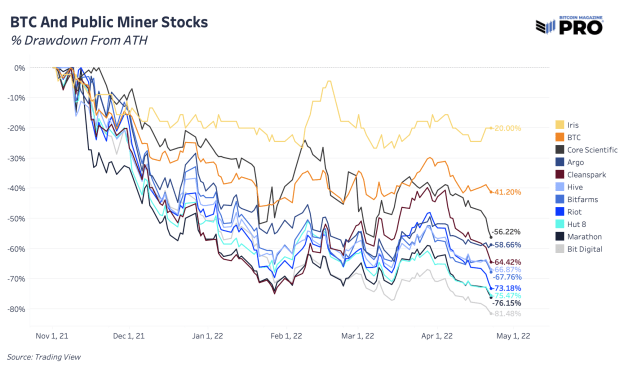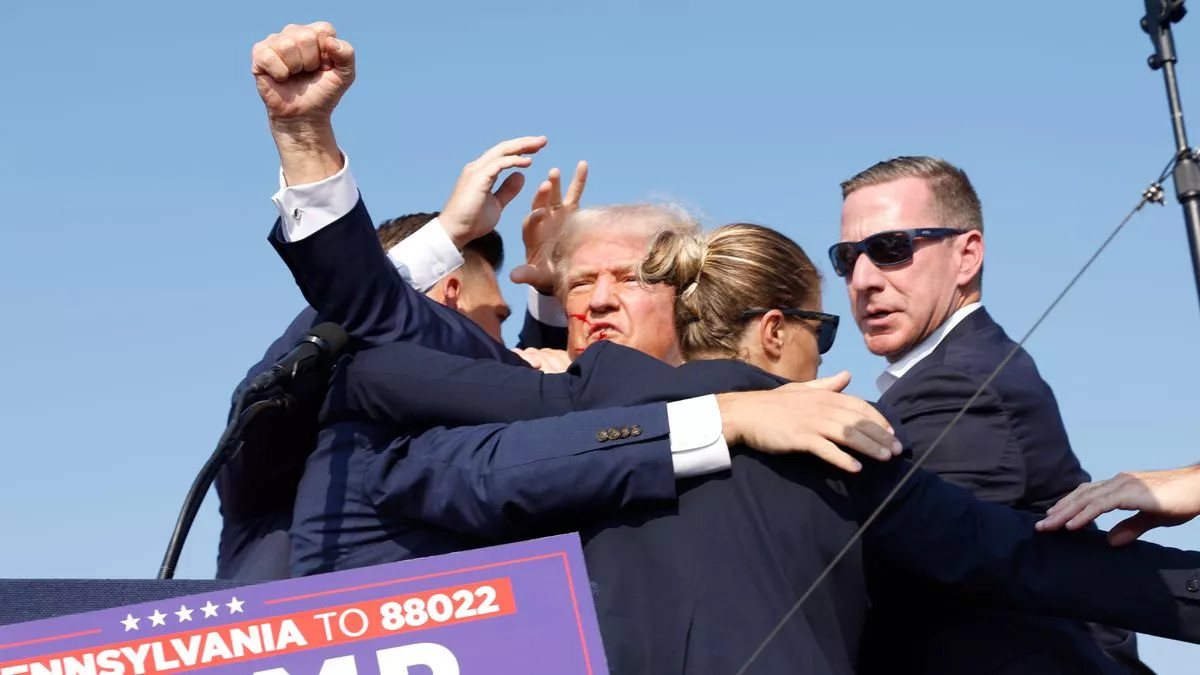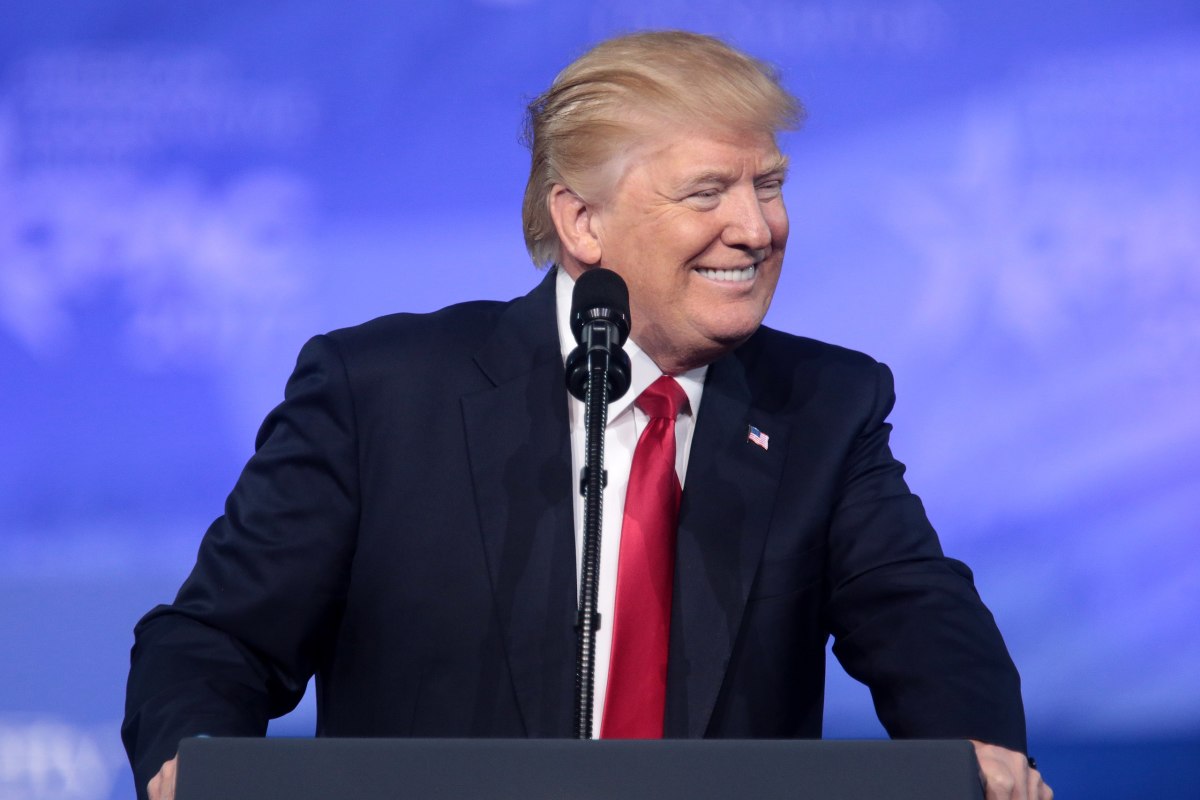From Bernie To Bitcoin: In Search Of The Revolution
One man’s journey in search of the revolution he thought would be brought about by trusting a one-person solution for fixing America’s problems.
Logan Bolinger is a lawyer and the author of a free weekly newsletter about the intersection of Bitcoin, macroeconomics, geopolitics and law.
Part One: The Thing About Trust
“Political questions are far too serious to be left to the politicians.” – Hannah Arendt
“What good would politics be, if it didn’t give everyone the opportunity to make moral compromises?” – Thomas Mann
In mid- to late 2019, as the 2020 Democratic presidential primaries were heating up, I did something I’d never done before: I made my first contribution to a political candidate. This candidate was one Bernard Sanders, who I will simply and affectionately refer to as “Bernie,” his avuncular mononym, for the duration of this piece. I made a small contribution to his campaign, and then I kept making additional, subsequent contributions.
I was drawn to Bernie’s campaign because I believed, and still believe, that this country has fundamental flaws and problems that have not been addressed and were clearly not going to be addressed by insider candidates like Joe Biden. Most importantly, I trusted Bernie. His steadfastness, his unwavering and long-standing commitment to his ideas was (and remains, in my opinion) laudable and compelling. In a world of grifters, opportunists, charlatans, dilettantes and power-seekers, Bernie always seemed different. You could point to a set of principles for which he stood. All of this made me feel I could trust Bernie to use the tools at his disposal to effectuate the type of change I thought necessary.
I’d always been someone who believed, perhaps naively, that if we could just elect the right person, if we could just install the right group of people, that we could get to seriously addressing, or at least credibly confronting, the many grave and pressing issues facing this country and the world. In other words, if we could just put someone in office whom we could trust not to make harmful compromises, trust to possess a firm working knowledge of all issues, and trust to be able to steward an agenda through the labyrinthine machinery of the legislative process and its divergently interested parties, then we could make some real progress.
This idea of trust, though, is fundamental and deserves examination. In the U.S., as a representative democracy, our politics is largely premised on trust. I myself do not vote on pieces of legislation and neither do you. Instead, we entrust these decisions to the judgment of our elected officials. We ostensibly empower these officials with our trust. It is for this reason that so much of political campaigning focuses on establishing the trustworthiness of one candidate and juxtaposing it with the asserted, comparative lack of trustworthiness of the opposing candidate. This takes many forms, and preferred forms differ somewhat depending on which side of the partisan aisle you’re on.
Democrats tend to appeal to authenticity and/or ideological purity; Hence, Joe Biden insisting, ad nauseam, that he’s just a simple, working-class kid from Scranton, Pennsylvania. Which, decoded, really just means, “Trust me, because I’m not one of these rich, silver-spoon insider types.” Another example is Bernie, proudly stating he received no donations from billionaires or CEOs. The focus on campaign donation sources, generally, is a way of soliciting trust on the grounds that a candidate receiving only grassroots donations cannot be compromised or captured by special interests. These are but a few examples.
Republicans, on the other hand, tend to play the authenticity game from a slightly different angle — namely highlighting one’s remove from or relative inexperience in politics as evidence of authenticity, as if to say one’s adjacency to, or years in politics is a negative thing in itself. This is the Trumpian political outsider angle. Republicans will, like Democrats, also engage in class signaling, which often manifests as the oft-repeated contrast of rural, fly-over folks and the dreaded “coastal elites.”
The point of all this, though, is to solicit, inspire and secure trust. There are multiple important and intractable problems with this trust model, however.
First, individuals and political parties can be compromised. Commitment can waver or halt. Ideas can ossify, devolve or fail to appropriately meet changing facts. Errors can and will be made. Special interests can prove more insidious and insurmountable than originally anticipated or promised. And, more bleakly, power can (and often does) corrupt. Candidates can and do lie. Which is all to say individuals are single points of failure. Trusting that none of the aforementioned phenomena will occur is, as I have indelibly learned, naive.
“The truth is that all men having power ought to be mistrusted.” – James Madison
Second, you are implicitly trusting individuals to have (or be able to swiftly acquire) requisite knowledge about the myriad and numerous topics upon which they would legislate and about which they would make crucial decisions. The sphere of human endeavor over which Congress is tasked to preside is ever-widening and self-perpetuating. It is comical to think that these lawmakers, many of whom are quite old, can cultivate an adequate command of each and every issue about which they make law. And this fact is increasingly alarming. It has led to negative outcomes in the past — think the Iraq War, the bailouts of the banks and bankers in 2008, the uber-inflationary monetary policy that has widened the wealth gap, the hollowing out of our manufacturing capacity, the bungled exit from Afghanistan, the failure to keep up with China, etc. If not addressed, it will continue to yield negative outcomes in the future.
Third, the machinery of Washington, D.C. — replete with its entrenched polarization — has reduced politics to the mere performance of politics and an increasingly esoteric game of bipartisan virtue signaling.
Most avid Bernie supporters, myself included, believed that the Senator from Vermont was uniquely equipped, both in character and ideology, to overcome all three of the aforementioned challenges.
Bernie has more or less believed the same slate of ideas for the duration of his political career, which, compared to someone like Biden — whose stated political beliefs repeatedly seem to coalesce around those most likely to win reelection — is and was quite refreshing. Bernie’s commitment to his ideas was (and remains) authentic and unwavering. It made you think he, unlike so many others, was impervious to outside influences seeking to compromise his vision. We will of course never know, as he obviously did not win, but it certainly felt that way at the time.
In fact, I would argue that Bernie’s authenticity was so strong, and especially in comparison to his opponents, that less attention was paid to how well he understood some of the problems he sought to solve. After all, as I’ve written before, it is precisely the kind of Modern Monetary Theory approach to deficits and monetary policy advocated by folks like Bernie that tends to exacerbate the wealth inequality those same folks seek to address. I’ll explore this further in another upcoming article.
There was also the quaint belief that Bernie could somehow cut through or transcend the insoluble gridlock of Congress through his sheer, implacable will.
Again, we will never know how Bernie would have fared as President, but I think it’s clear from subsequent developments that there is no one-person solution to many of our national problems. The infectious, passionate faith that was placed in Bernie by so many was powerful evidence of our collective, desperate capacity to believe in this kind of one-person solution.
It’s worth noting, on the other hand, that much of the enthusiasm around Trump was grounded in this same idea that one exceptional actor can cut the Gordian knot, a sentiment ironically articulated by that campaign as “draining the swamp.” In other words, our capacity to believe in the one-person solution is not confined to either Democrats or Republicans.
This piece is not one about Bernie’s failures (or Trump’s), however. It’s about how our political system invites us to place more and more trust in individuals to solve more and more problems in an environment more and more hostile to problem-solving of any kind.
One reaction, typified by my own support of Bernie, is to find someone you can trust even more vigorously, the idea being things are so broken that only someone who is ideologically unimpeachable can fix them. In essence, this is just ratcheting up the stakes without changing the nature of the game in any way. Incumbent, special interests still win. This is, to quote Ambrose Bierce, politics as “a strife of interests masquerading as a contest of principles.”
There is another way, however; this is where Bitcoin comes in.
What if, instead of increasing the amount of trust we placed in lawmakers, we decreased the surface area of their legislative purview? This would decrease the scope of damage that could be wrought by ill-informed decision-making, and disincentivize moral compromises by reducing the degree of its payoffs.
But we can’t just decrease the surface area of legislative purview without replacing it with some other mechanism. After all, just because the scope of power shrinks does not mean the issues over which that power was formerly exercised go away. At the same time, we don’t want to encounter the same three problems with trust that we enumerated above with whatever replacement mechanism we choose. We want to find something that is effective but also trustless. Before Satoshi Nakamoto, such a thing did not exist.
The adoption of Bitcoin, whether by proactively transitioning to a world with a neutral reserve asset, pegging the dollar to bitcoin, or perhaps even an outright currency-level embrace, takes away some — though obviously not all — of the monetary issues over which Congress, in conjunction with the Federal Reserve and the Treasury Department, customarily exercises power and judgment. That makes them more resistant to human error and the vicissitudes of partisan agendas. It would establish and enforce a monetary discipline that could not be abused to achieve various short-term ends at the expense of long-term sustainability and promise.
As a point of clarification, I am certainly not suggesting we surrender the entire legislative process to computer code. Democratic processes can and must remain in place. What I am suggesting is that some encoded monetary discipline may allow us to evolve from our present monetary trajectory in which crises necessitate interventions, which beget greater crises that require more expansive interventions, which beget existential crises, and so on and so forth. This trajectory is unsustainable and ultimately economically terminal. When the cure increasingly worsens the patient, sober minds look for more effective remedies. It is the height of hubris to think the same deleterious “cures” — though implemented by new, preferred individuals — will lead to different results.
Bitcoin is exceedingly difficult to corrupt, particularly as compared to the corruptibility of the average human being. Its adoption would obviate the need for politicians to aspire, sincerely or not, to meaningful expertise about topics as abstruse as monetary policy and thereby limit the negative consequences of not achieving said expertise. We would be remiss not to acknowledge that most politicians are very obviously not aspiring to meaningful expertise here.
Currently, there is simply too much surface area for governmental incompetence, ignorance and outright malevolence. Again, I’m not suggesting that we should have no trusted individuals or politicians, nor am I arguing for the abrogation of Congress’ legislative function. Not at all. I am merely suggesting that we should be realistic, pragmatic and clear-eyed about what is within the sphere of competence and potential accomplishment of these trusted individuals and political parties versus what could be accomplished by according the delineation of basic parameters (namely those relating to the integrity and equity of our monetary system and our money) to a protocol that does not require anyone’s trust.
We should also be cognizant of the lasting, potentially irreversible harms that can be wrought by entrusting control over the money supply to the vicissitudes of short-sighted, partisan manipulations and/or hasty, ill-conceived, and sometimes dubiously motivated lawmaking, undertaken by those whose knowledge of elementary monetary concepts is often not obviously more advanced than that of the average high school or undergraduate student. Yes, we can and should utilize the democratic process to replace lawmakers who prove to be under-educated on these important issues, but something so fundamental to the maintenance of the collective good as the money supply would perhaps more optimally be removed from the whiplash, hot-potato changing of divergently interested elected and unelected hands and instead accorded to a secure, trustless protocol.
The first major breakthrough for me on my journey from Bernie to Bitcoin was confronting this idea of trust in politics and wondering how Bitcoin’s trustlessness could be leveraged toward a positive political end via its potential to constrain lawmakers.
My next, and perhaps most perspective-altering breakthrough, was understanding that politicians on both sides were mislocating the causes of the problems they were purportedly trying to solve. Once these causes are accurately located, it becomes clear that Bitcoin addresses them more compellingly and more convincingly than politicians.
I’ll explore this in part two.
This is a guest post by Logan Bolinger. Opinions expressed are entirely their own and do not necessarily reflect those of BTC Inc. or Bitcoin Magazine.









